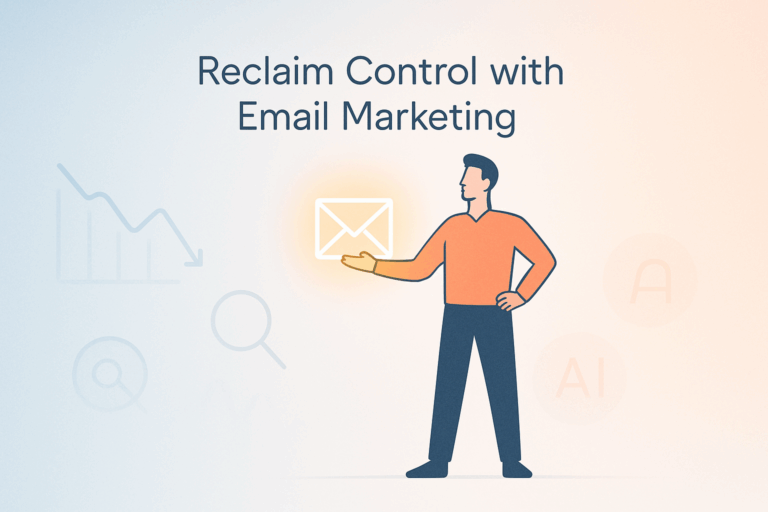
Impact of AI on Organic Traffic
The landscape of online content discovery is undergoing a notable transformation. Increasingly, AI-powered search engines such as Google’s SGE, ChatGPT, and Perplexity are reshaping how users access information. Instead of directing visitors to websites, these platforms often present immediate AI-generated responses. Such answers frequently draw on existing content across the web without directing users to the original sources.
Consequently, website owners and content creators have observed a decline in organic traffic. While content is still being published and optimized, the number of users clicking through to websites is shrinking. This shift challenges traditional assumptions about the effectiveness of search engine optimization (SEO) and the visibility it once guaranteed.
The Shift in Search Engine Behavior
Search engines have evolved beyond simply listing relevant web pages in response to user queries. They are increasingly providing concise, synthesized information directly on the search results page. This change removes the step where users must visit individual websites to get the answers they seek.
As a result, websites become less central to the user journey. The traffic that content creators worked hard to earn becomes, in a sense, repurposed to enrich AI platforms’ responses. This new behavior disrupts traditional marketing strategies that depend heavily on attracting users through organic search results.
Why SEO Alone Is No Longer Enough
While SEO remains a valuable tactic for online presence, relying solely on it limits control over audience engagement. The shift means organic rankings no longer assure visibility or clicks. Because AI search experiences bypass websites, traffic volumes can diminish despite consistent optimization efforts.
Marketers whose strategies depend exclusively on SEO risk becoming dependent on external platforms. In other words, their success hinges on algorithms and behaviors outside their direct influence. This situation underscores the need for complementary approaches that allow businesses to maintain ownership of their communication channels.
Reclaiming Control with Email Marketing
In response to these challenges, prioritizing direct engagement with existing audiences has become a strategic focus. Email marketing remains one of the most effective methods to retain control over messaging and relationships with customers and prospects.
Email provides a channel free from algorithmic interference, enabling personalized, one-on-one communication. Segmentation tools within email platforms allow marketers to deliver messages tailored to specific behaviors and preferences, enhancing relevance and impact.
Advantages of Email Marketing in the AI Era
Email stands out because it is direct, personalized, and highly adaptable. According to data from Marigold’s 2025 Consumer Trends Index Report, a significant majority of consumers show willingness to engage with emails promoting exclusive offers and sales. This statistic highlights email’s continued strength as a tool for promotional campaigns.
Moreover, well-segmented email campaigns can deliver the right content to the right audience, fostering stronger connections and higher conversion rates.
Consumer Engagement Trends in Email
Consumers demonstrate a preference for emails that recognize their individual interests and histories. Targeted offers, personalized recommendations, and timely communications increase the likelihood of engagement. Brands that provide value through tailored messaging often experience better loyalty and sustained interaction.
Introducing Campaign Monitor by Marigold
Campaign Monitor, offered by Marigold, is an email marketing platform designed to meet the needs of fast-paced businesses aiming to thrive amid shifting market dynamics. This platform goes beyond basic newsletter distribution, acting as a comprehensive management tool for customer relationships.
Key Features of Campaign Monitor
Campaign Monitor offers several capabilities tailored to effective email marketing:
List Management and Segmentation
With declining organic traffic making contact lists increasingly precious, Campaign Monitor helps businesses manage and segment their audiences efficiently. Users can organize contacts by behaviors, purchase histories, or engagement levels. Identifying and reactivating dormant subscribers is also facilitated, alongside list cleaning to maintain deliverability.
Automation for Continuous Nurturing
Automation workflows in Campaign Monitor enable marketers to maintain ongoing engagement without the need for constant manual effort. Features include sending personalized welcome emails, nurturing sequences with pre-built templates, and triggering timely messages for behaviors such as abandoned carts or event sign-ups.
Personalization to Enhance Engagement
Generic emails often go unnoticed. Campaign Monitor supports personalized subject lines, dynamic content, and product recommendations tailored to individual recipients. Continuous A/B testing helps optimize campaigns further for improved results.
Performance Tracking and Analytics
Unlike AI platforms that may withhold user engagement data, Campaign Monitor delivers comprehensive insights. Marketers can track opens, clicks, conversions, and revenue per campaign. This data empowers informed decisions and strategic adjustments.
Strategies to Thrive in the AI-Driven Landscape
To succeed amid changing search and discovery mechanisms, businesses should focus on building their email lists with intent-driven offers that encourage subscriber sign-ups. Enhancing email strategies through segmentation, personalization, and automation maximizes efficiency and effectiveness.
Utilizing Campaign Monitor’s tools allows scaling these efforts without overburdening marketing teams. The approach centers on nurturing and activating existing audiences rather than relying solely on new organic traffic.
Conclusion: Embracing Ownership in Marketing
AI technology has altered the dynamics of online content consumption, challenging traditional traffic and SEO strategies. However, shifting focus toward channels under one’s control, especially email marketing, provides stability and growth potential.
Campaign Monitor by Marigold offers the infrastructure to harness direct communication, advanced automation, and actionable analytics. In doing so, it helps businesses maintain audience engagement and revenue generation despite changes in the broader search environment.
Taking ownership of marketing efforts through strong email programs positions brands to withstand current challenges and foster long-term success.
